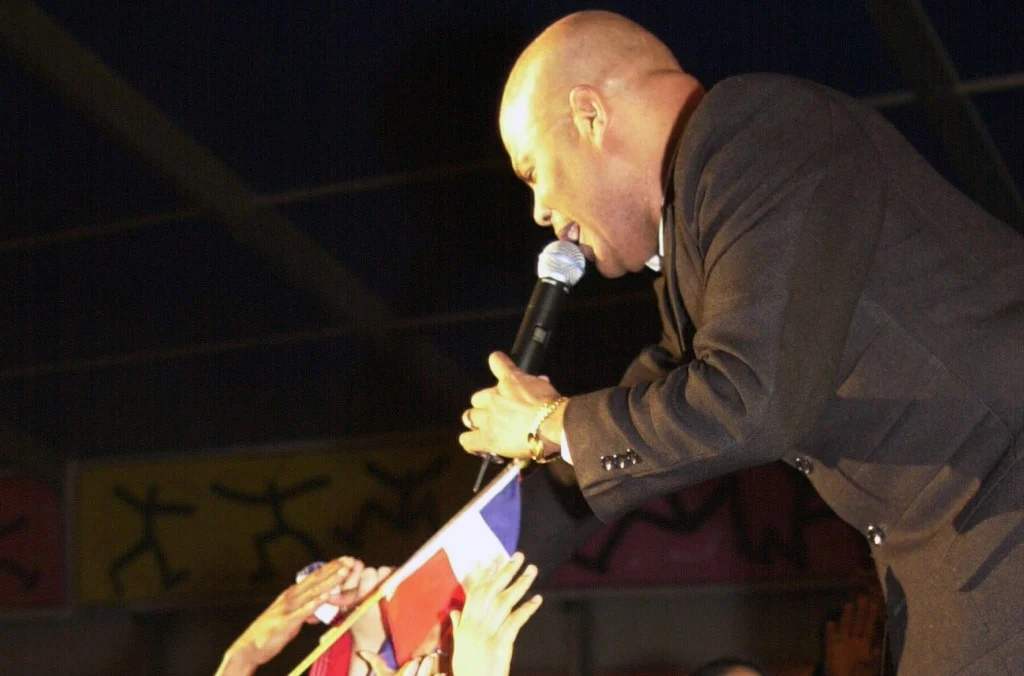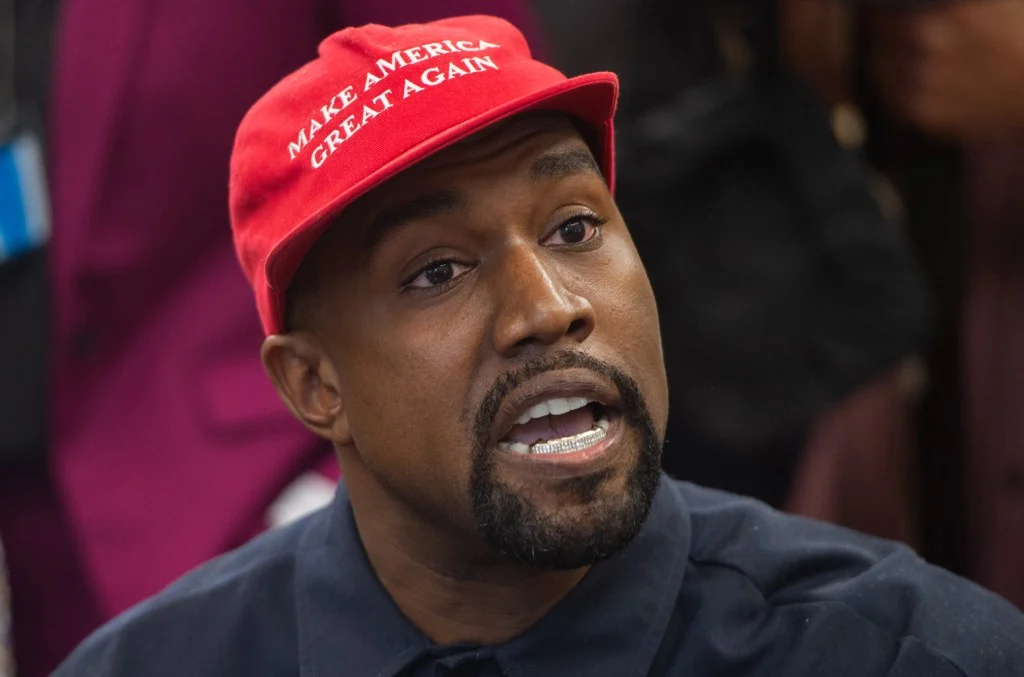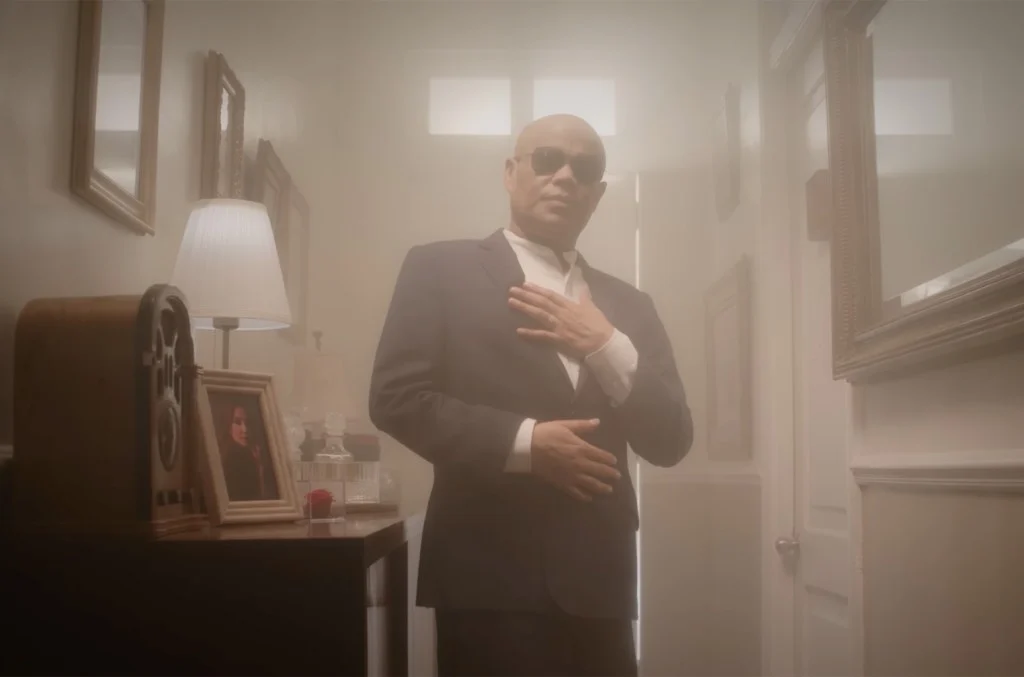nsfs
Page: 17
It has been nearly eight months since disgraced hip-hop mogul Sean “Diddy” Combs was arrested and sent to New York’s notorious Metropolitan Detention Center to await trial on sex trafficking and racketeering charges. And while the formerly high-flying Bad Boy Records CEO and billionaire entrepreneur was used to the finest things in his former life, according to the New York Times, his life in the communal, dorm-style unit segregated from the rest of the inmates is a study in contrasts from his previous life.
Explore
See latest videos, charts and news
See latest videos, charts and news
For starters, the typically dapper MCs hair and beard have gone grey, since hair dye is not allowed in the Brooklyn jail that has long been the source of complaints over its decrepit state, including reports of mold and vermin, extended lockdowns and understaffing. As part of his daily routine, Combs, 55, is woken up for breakfast at 7 a.m. and afterwords has time to exercise in a room with yoga mats and a small basketball hoop, or to hang in a communal space with a ping-pong table and a TV.
Combs’ lawyers have tried, and failed, three times to get their client released on bail on the charges that, if he’s found guilty of, could land Diddy in prison for the rest of his life. While Combs has pleaded not guilty to the charges he awaits opening statements in the trail slated to begin on May 5 over allegations that the rap impresario oversaw a violent criminal conspiracy that allegedly included kidnapping, arson and drug crimes in service of his alleged sexual abuse of multiple men and women to satisfy his need for “sexual gratification.”
For now, Combs is in an area of the jail called 4 North, a fourth floor space where around 20 men are housed. Fellow high-profile inmates on the unit included, until recently, crypto boss Sam Bankman-Fried, along with government informants, including former gang members who have been segregated for their safety from the general jail population; accused United Health Care CEO murderer Luigi Mangione who shares a lawyer with Combs, is housed in the same jail, but in a different unit.
While Combs’ lawyers at first thought their A-list client would be housed in the restrictive Special Housing Unit where inmates spend 23 hours a day inside their cell, he was instead sent to the less harsh 4 North Unit.
A former Mafia informant, Gene Borrello, told the paper that compared to other units in the jail “you have nothing to worry about” on 4 North. As described by the Times, inmates in Combs’ unit are free to move around the space decked out with rows of bunk beds, TVs and a microwave where they are subject to repeated mandatory check-ins of their bunks by correction officers every day.
Inmates, who are issued brown jail clothes, are able to eat their meals in a common area and use a bathroom that has stalls, as well as listen to music or watch movies on a tablet for sale at the commissary, though they do not have any internet or wi-fi access. Diddy meets often with his team of lawyers in a conference room off the common area and has a non-wi-fi enabled laptop to pore over evidence in the case that he can use between 8 a.m. and 3:30 p.m. each day in one of the unit’s visiting rooms.
While Diddy dined on the finest meals provided by private chefs in his former life, the menu in lock-up is decidedly less glamorous, with a rotating menu that includes lasagna or “pasta fazool” for vegetarians on the second Friday of each month. There are also Snickers bars and bags of Cheez-Its for sale in the commissary, along with toiletries, radios and watches. Inmates can spend up to $180 at the commissary every two weeks from funds provided by friends and family, with one crucial item, $1 packets of mackerel (“macks”) serving as a key bartering tool among the incarcerated.
Combs is allowed to have visitors on Tuesdays and while he can make phone calls — such as a recent one to rapper Ye — the conversations are capped at 15 minutes and they are subject to monitoring by authorities. The story noted that during a pre-planned sweep of the jail in search of contraband last year, prosecutors claim an investigator took photos of some of Combs’ personal notes. The pictures allegedly included birthday reminders, as well as notes the government claims were evidence that Diddy was trying to obstruct the prosecution, including one in which he allegedly directed a staffer to find “dirt” on two of his alleged victims.
The rapper’s lawyers claimed that was proof the government was trying to “spy” on their client and eavesdrop on confidential communications with counsel. Prosecutors denied that claim and said none of the notes would be used in their case and a judge agreed that Combs’ rights had not been violated.
But according to the Times, the incident revealed that Combs had engaged in the widespread practice of buying other inmates’ phone time by having his team put money in their commissary accounts, with prosecutors claiming that on some of the calls he talked about using public statements to help influence the jury pool’s perception of him. He also allegedly used three-way calling to try and contact potential witnesses to avoid blocks on calling people outside of his approved contact list.
While the current accommodations are, as expected, spare and somewhat harsh, they likely pale in comparison to the federal prison Combs could be sent to convicted on the charges in the eight-week trial. Even as he awaits his upcoming trial, Combs was hit with an updated indictment earlier this month that added new charges to the sweeping case against him. The superseding indictment added a new sex trafficking count, accusing Combs of using force, fraud or coercion to compel a woman to engage in commercial sex acts as recently as last year. It also added a new count of transporting that victim and others to engage in prostitution. The updated charges increased the total counts against Diddy from three to five.
Combs is also facing dozens of civil lawsuits from a number of men and women who claim the rap impresario allegedly sexually abused, sex trafficked and threatened them with violence.
Marc Nathan, the promotion and A&R executive who in his 55-year career helped Barenaked Ladies, 3 Doors Down and more get record deals, has died. He was 70.
He passed away earlier this week at Vanderbilt Medical Center in Nashville, a representative says. A statement said Nathan had “been ill for some time and he finally succumbed to a variety of afflictions.”
Nathan got his foot in the door in the music industry at just 15 years old, when the then-Queens, New York, kid wrote a letter to Todd Rundgren and received a reply from Ampex Records’ Paul Fishkin, in regards to a track listing anomaly he found on Rundgren’s Runt album.
“He just so happened to open a stack of Todd’s fan mail that day. If he hadn’t opened that stack of mail that day, you know … My life would have been altered forever,” Nathan said in an interview in 2019.
Nathan soon landed his first industry job in radio promotion at Ampex, which led to him building a career with roles in promotion at labels including Bearsville, Casablanca, Playboy, Sire and Atlantic.
“I lost my best friend of 55 years,” Fishkin noted following his death. “Marc Nathan walked like he talked as well as anyone I’ve ever known. His irascible, acquired taste persona was what I enjoyed the most, even though maddening at times. We had much in common chiding and deriding phonies and pretentious fools in sports, politics, but most importantly, the music business. We occasionally enjoyed busting each other as well. We delighted in having our own sometimes hilarious shorthand putting us on the floor at times with uncontrollable laughter. He was a great record man, and a baseball and hockey chronicler supreme, among his many talents and passions. And yes, I have stories! But most important was his loyalty and support for all the right people and issues. And he never let me down in all those 55 years.”
Over the years — with stints in New York, Los Angeles and, most recently, Nashville — Nathan also worked in A&R, having a hand in Universal’s acquisition of Cash Money Records, and in talent development for Universal, Capitol, Atlantic/ATCO and imprints.
Among the artists he got signed were the bands 3 Doors Down (at Universal) and Barenaked Ladies (at Sire). He later established a label, Flagship Records, to release solo work from Barenaked Ladies co-founder Steven Page.
“Marc was a record person of the highest order,” Page wrote following his death. “He was absolutely and passionately obsessed with music and amassed an encyclopedic memory for songs, charts and artists. He played a huge role in my career and in my life — a role that arced across our entire shared timeline. Marc was a guy who loved big, emotional music and also too-smart-for-its-own-good pop and had a huge soft spot for silly novelty songs too. We kind of fit the bill perfectly for him and he got us. Marc took our demo tape to Seymour Stein at Sire records, and, thankfully, Seymour got it. While everyone else was calling us a throwaway, Seymour looked at Marc and said, ‘They’re a Simon and Garfunkel for the ‘90s.’ Marc was always especially proud of his involvement, and I’m eternally grateful to him for it.”
Page added, “He was among the first and most persistent of my friends to lend me support, advice and solidarity. He could be a nudge, but that’s only because he had a huge heart and he really, really cared. There were many, many people in his life that he would counsel and coach and cajole and mentor through their darkest hours — he’d been there and back several times himself — and I’m proud and grateful to be one of those friends. I’m lucky to have known him.”
Four people hospitalized after being rescued from the rubble of a roof collapse at a popular nightclub in the Dominican Republic died overnight, raising the death toll to 225, health officials said Saturday (April 12). Officials said 189 people were rescued alive from the rubble of the popular venue in the capital Santo Domingo. More […]

Alma Joselin Holguín, a 48-year-old lawyer from the Dominican Republic, went to the Jet Set nightclub on Monday (April 7) with her husband to watch Rubby Pérez in concert. She details the venue’s ambiance inside and the exact moment its roof collapsed. Both Holguín and her husband survived the tragedy. Here’s her story, in her own words, exclusively on Billboard.
It was a very joyful night. Rubby Pérez gave his 100%; I had never seen him perform before, and I wanted to see him because he has several songs that remind me of my teenage years. It was my second time, after almost 30 years of not going to Jet Set, and my husband’s first. The club started filling up around 10:40 p.m., and at one point there were up to 700 people. The truth is, that night Rubby had the crowd happy, dancing, singing. Everyone was enjoying the moment, taking selfies. The crowd was very happy.
I didn’t see anything unusual from where we were sitting. We were opposite of the stage, near a bar by the entrance and about 35 meters from an emergency exit. In fact, they offered us a VIP table near the stage, and we declined to avoid the large groups of people. We were just enjoying the concert from where we were. We didn’t feel the need to go near the stage or onto the dance floor because it was too crowded.
Trending on Billboard
The orchestra started playing around 11:38 that night, and after an hour, it was all over. Around 12:40 a.m., I was one of the first people to call 911. I got through right away, and I said, “The roof of the Jet Set just fell. It’s crushing everyone. Send all the ambulances you can!”
All in all, we weren’t hysterical at the time.
Jet Set Club survivor, Alba Holguín and her husband, at the Rubby Pérez concert moments before roof collapse.
Alba Holguín
I remember there was a deathly silence, like a void in the air. The ceiling collapsed with a single blow, the entire roof fell with the irons, with the lights, it collapsed with everything! It landed at the same level as where we were sitting. It fell almost at our feet. I remember the dust rising, I remember that silence, and then the people screaming. The only thing I thought at that moment was, “My God, the ceiling fell on people!”
We had to unblock the emergency exit because they had chairs and tables blocking it—when they moved all that, a group of about 30 people managed to get out with us. I had no feelings at that moment; it was a mechanical thing: protect ourselves, sort things out, and leave.
Today I feel tired and burdened because I slept very poorly. Emotionally, I feel a certain gratitude, a certain peace for being alive. Sadness for everything that’s happening. I’ve tried not to watch too much news so as not to expose myself further emotionally. Yesterday and today I went to work, trying to make more sense of the fact that my husband and I were blessed with a protection that we believe is divine, and we came out without a scratch, without anything.
We’re trying to carry on with life as normally as possible because at the end of the day, it’s like feeling like I have a mission in life. I was blessed with the opportunity to bear witness. I survived a tragedy, and it was because of God’s love, a divine protection.

Rubby Pérez was among the victims of the deadly Jet Set nightclub roof collapse on Tuesday (April 8). Hours after the tragedy, it was confirmed that the 69-year-old merengue icon had died after being trapped in the rubble.
Pérez had been performing at the nightclub in the early morning hours of Tuesday at the upscale nightclub located in Santo Domingo, Dominican Republic, when the roof collapsed, killing more than 120 people, according to the Associated Press’ latest death toll, and injuring hundreds more.
On Wednesday, Pérez’s team posted an official statement on the artist’s Instagram account. “It is with deep sorrow that we inform you of the passing of our beloved Rubby Pérez,” the post reads in Spanish. “We sincerely appreciate all the love, support and solidarity we have received at this difficult time for his family, friends and fans. His musical and human legacy will live forever in our hearts.”
Trending on Billboard
Born Francisco Arturo Pérez in Hato Mayor, the singer launched his career as the lead vocalist of Wilfrido Vargas’ orchestra. He then kicked off his solo career in the 1980s and catapulted to stardom thanks to classics like “Volveré” and “Enamorado de Ella.”
Immediately after reports of his death, a number of Latin artists posted heartfelt tributes in honor of the musician. “Heartbroken, not only for all the victims of this tragedy but also for the departure of someone so admired,” merengue star Olga Tañón wrote on Instagram. “My God, maestro you leave us in great pain. One of my greatest idols of all my life!”
“My heart goes out to all Dominicans after such a terrible tragedy, the loss of a great musician, a great brother, who with his music transcended generations as was the great Rubby Pérez, and for all those who died and were affected under the same circumstances,” wrote Venezuelan salsa singer Oscar D’León.
Meanwhile, Wilfrido Vargas, who was a key figure in the rise of Pérez, shared on Instagram: “I am devastated. The best singer the genre has ever produced, the highest voice of merengue. The friend and idol of our genre, has just left us. I have no more words. This is very deep, deeper than what you can feel even in the most terrible of dreams. Farewell Rubby Pérez.”
“You have arrived in the presence of the Lord Jesus, dear and admired Rubby Pérez,” Juan Luis Guerra wrote on Instagram. “May God pour out strength and His peace that surpasses all understanding upon your family and friends!”
Fellow Dominican artist, Milly Quezada, expressed on Instagram: “Fly high my friend! Rest in peace dear Rubby! My heart goes out to your family and also to the families of all those affected in this tragedy!Without words…”
Other artists who mourned Rubby Pérez include Marc Anthony, Ricky Martin, Chichi Peralta, Elvis Crespo, Sergio Vargas, Yordano and Toño Rosario, among others.
Ye (formerly Kanye West) has been staunch in his support for Donald Trump since the business mogul’s first presidential term. During a stream with Digital Nas on Tuesday (April 8), the embattled rapper claimed that Frank Ocean attempted to talk him out of supporting the twice-impeached president prior to the 2016 election.
“Frank Ocean p—y a– come over my house talking about Trump all day and how I shouldn’t support Trump,” he said. “N—a f–k you know about politics and n—a I’m your motherf—ing senior, OG, y’all used to come on tour with mea.”
Ye continued: “None of you n—-s can tell me about politics n—a. F–k you think? You read a book and now you can tell me some s–t? None of these n—-s as talented. I’m the greatest motherf—ing artist that ever existed. They can just be slightly better at one thing cause they only do that one thing.”
Billboard has reached out to Ocean’s reps for comment.
Ye — who has faced continued backlash for his ongoing hate speech — hasn’t been shy about his support for Trump over the years. He originally had a pro-Trump rant during his Saint Pablo Tour in 2016 and met up with the president at Trump Towers in December 2016 for a photo op.
He pulled up to the White House in 2018 while rocking a red MAGA hat, where he spoke about his appreciation for the president and met with Trump at the Oval Office. Ye kept the MAGA hat on throughout the year and even wore it during his appearance on Saturday Night Live.
While Ye opposed Trump in 2020 during his own brief presidential bid, he came back to support Trump — who has since been convicted on 34 felony charges in his hush money case — for the 2024 election as DT defeated Democratic nominee Kamala Harris.
Around the time of the alleged conversation between Ocean and Ye in 2016, they had been collaborative on the music side. Ocean helmed “Frank’s Track” on The Life of Pablo, while West had a cameo on Blonde‘s “White Ferrari.” Ocean hasn’t released a project since.
However, West’s tune changed in March when he claimed during an explosive interview with DJ Akademiks that “Moon” from 2021’s Donda album was the end of his former collaborator’s time in music.
“Like when I made, ‘Moon,’ it basically ended Frank Ocean’s career. He ain’t have a song since then. He talking, ‘Sipping some wine.’ I knew it I heard it, I was like, ‘Oh, this n—a not gonna be able to make another album again,’” he said. “Any genre of music that anyone has, I make a better version of it. I’m 10 times stronger at music than anyone living.”

The death toll from the roof collapse at the Jet Set club in Santo Domingo in the Dominican Republic has climbed to more than 113 people. According to the Associated Press, the iconic venue was packed with “musicians, professional athletes and government officials,” when dust from the ceiling began to fall into attendees’ drinks before the entire roof collapsed.
In addition to the scores of dead buried under concrete slabs, authorities said more than 255 were injured. Merengue superstar and concert headliner Rubby Pérez — who was on stage performing when the ceiling collapsed — was among the dead, according to emergency operation director Juan Manuel Méndez, who said the 69-year-old singer’s body was found early Wednesday morning (April 9). The collapse happened roughly an hour into Pérez’s midnight performance.
Trending on Billboard
Pérez’s official Instagram posted a tribute to the late singer on Wednesday morning honoring the beloved star born Arturo Pérez in Hato Mayor. “It is with deep sorrow that we announce the passing of our beloved Rubby Pérez. We sincerely appreciate all the love, support, and solidarity we have received from his family, friends, and fans during this difficult time. His musical and personal legacy will live forever in our hearts. May his soul rest in peace.”
As of press time rescue teams from Puerto Rico and Israel had arrived to help local authorities, who said they were still searching for any potential survivors, with Méndez telling the AP that “as long as they report that there is a missing person, we will be there.”
Among the dead were two former Major League Baseball players, pitcher Octavio Dotel and Dominican star Tony Enrique Blanco Cabrera. An Instagram tribute to seven-time MLB All-Star Dotel from the Ministry of Sports and Recreation read: “We deeply regret the passing of former Major Leagues and Immortal of Dominican Sport, Octavio Dotel, 51. His legacy on and off the field leaves an indelible mark on national baseball history. Peace to his soul and strength to his family and loved ones.” Dotel pitched for 13 teams during a 15-year MLB career, including a pennant-winning season in 2011 with the St. Louis Cardinals.
The Ministry’s tribute to Blanco, 44 — who played in the outfield and as a first and third baseman, spending eight years in the minors, as well as one season with the Washington Nationals (2005) and 16 years in the Japanese baseball league — read, “We deeply regret the passing of former Major Leagues and Immortal of Dominican Sport, Octavio Dotel. His legacy on and off the field leaves an indelible mark on national baseball history. Peace to his soul and strength to his family and loved ones.”
Among the other reported victims were Nelsy Cruz, the governor of the northwestern province of Montecristi, and sister of seven-time MLB All-Star Nelson Cruz, who called DR President Luis Abinader from underneath the rubble to alert him of the disaster and later died at a hospital. The AP reported that Pérez’s saxophonist Luis Solís, who was on stage during the collapse, also died.
The Jet Set club issued a statement on Tuesday morning, sharing condolences to the families of those killed and injured in the roof collapse. “Last night, a tragedy struck that has deeply shaken the hearts of everyone who is part of Jet Set and all Dominicans. The loss of human lives leaves us in a state of profound sorrow and grief,” the venue wrote on Instagram. “In this difficult moment, our prayers are with each of the affected families. We share their pain as if it were our own, as we too are in mourning. We are working fully and transparently with the competent authorities to assist the victims and clarify what happened … We join the country in expressing solidarity during this unexpected and painful situation.”
At press time authorities were still investigating the cause of the roof collapse. Only 32 people have been identified in what is being described as one of the worst disasters to hit the Dominican Republic.
Rubby Pérez has been hospitalized following the deadly roof collapse at the Jet Set nightclub in the Dominican Republic, where he was performing early on Tuesday (April 8). The 69-year-old Dominican merengue singer — known for Billboard hits such as “Tu Vas a Volar,” “Enamorado de Ella” and “15,500 Noches” in collaboration with Romeo Santos, […]
The roof of the renowned Jet Set nightclub in the Dominican Republic collapsed early Tuesday (April 8), killing dozens and injuring more than 100 attendees, according to local authorities. The deadly incident occurred during a Rubby Pérez live performance, where more than 300 people gathered to see the merengue singer perform.
Located in Santo Domingo’s National District, the beloved live music venue — a go-to destination for locals and tourists alike — was celebrating its 50th anniversary, according to its Instagram account. “Dominican discotheque in charge of making its audience dance for more than 50 years,” an official description reads.
Hours after the collapse, the nightclub posted its statement: “Last night a tragedy occurred that has deeply touched the hearts of all of us at Jet Set and all Dominicans. At this difficult time, our prayers are with each of the families affected. We share their pain as if it were our own, because we are also in mourning. We are collaborating fully and transparently with the competent authorities to help the victims and clarify what happened. The loss of human lives leaves us in a state of deep pain and consternation. We join the expressions of solidarity from all over the country in this unexpectedly painful situation.”
Trending on Billboard
According to Enrique Paulino, Pérez’s manager, who spoke to reporters at the scene, the roof collapsed about an hour after the show’s midnight start time. The singer was transferred to the Plaza de la Salud Hospital, according to medical director Nepomuceno Mejía. Pérez’s saxophone player was killed in the incident, according to Paulino. It’s not clear what caused the roof to collapse.
Below are fo ur things to know about the emblematic Jet Set nightclub.
Location
Right in Santo Domingo, the capital of the Dominican Republic, the nightclub was located in the city’s National District, which hosts various nightlife activities, including chic discotheques, hotels and upscale restaurants and bars.
Who Has Performed There?
Powerhouses such as Los Hermanos Rosario, Sergio Vargas, Omega and Fernando Villalon, to name a few, had performed at the Jet Set. Notably, El Gran Combo de Puerto Rico performed there for the first time in 2008, in celebration of the nightclub’s 35th anniversary. Mondays were particularly busy for the live music venue.
Cultural Significance
Billboard Español contributor Franchesca Guim, who is from the Dominican Republic but is currently based in Spain, shares the importance of Jet Set. “The Jet Set has been part of the nightlife culture and entertainment in Santo Domingo. I would dare to say that it is a place of reference in the Dominican Republic, where locals and tourists attend to enjoy live orchestras,” she explains. “Christmas and New Year’s parties have been memorable, and part of the Dominican tradition. Any week lends itself to go to the Jet Set, because there is always a good atmosphere and above all live orchestras and music. My mom remembers that Jet Set Mondays became a tradition. Every Monday there was a party with a live orchestra.”
Background
Owned by businessman Antonio Espaillat, the Jet Set Club had a capacity of 700 seated and 1,000 standing room only. According to local reports, it had been remodeled several times to update its dance floor, ambiance, lights and sound. It is reported that in 2015 it underwent its last remodeling. In 2023, a fire affected the facilities after lightning struck its power plant.

Tragedy struck in the Dominican Republic after the roof of the Jet Set nightclub collapsed during a concert, leaving nearly 30 dead and 120 injured in the early morning hours of Tuesday (April 8), according to multiple reports.
The club’s roof collapsed during a live performance of renowned merengue star Rubby Pérez, known for Billboard hits such as “Tu Vas a Volar,” “Enamorado de Ella,” and “15,500 Noches” in collaboration with Romeo Santos, Toño Rosario, Fernandito Villalona and Raman Orlando. The singer has been transferred to the Plaza de la Salud hospital, according to medical director Nepomuceno Mejia.
As news broke, Dominican and other Latin music stars have expressed their condolences and solidarity on social media.
“My prayers for everyone affected by this big tragedy that happened at the nightclub in Santo Domingo. Peace and much strength,” bachata sensation Prince Royce wrote on his Instagram stories.
In a collaborative Instagram post with her label and manager, Pina Records and Raphy Pina, Natti Natasha wrote: “My beloved land, the Dominican Republic. Today we all woke up with broken hearts. A tragedy that mourns our country and leaves a deep void in many families. We woke up with tears in our eyes, in silence, in prayer. May God give strength to every mother, father, child, and friend who today suffers the loss of a loved one.From the depths of my soul, I share your pain. I am with you. We are in mourning.”
“Praying for all those rescued and for the families of the more than 15 people who lost their lives! Rubby Pérez, maestro, with all my heart, praying for your safety,” merengue powerhouse Olga Tañon reacted on Instagram.
Meanwhile, Latin hitmaker Emilio Estefan Jr. shared on Instagram: “All united with the Dominican Republic in this moment of sorrow. We share the sadness of a great country that we love so much. Our prayers are with all the affected families. Emilio, Gloria, and the Estefan family.”
Dominican producer Maffio said on social media: “Wow, God, what sad news. May God put your hand on those affected and their families. What a tragedy, I’m speechless.”
Los Toros Band, helmed by vocalist Héctor Acosta and who has performed at the Jet Set club before, also shared its condolences via a statement on Instagram. “On behalf of our office and our team, we want to express our solidarity with all the Dominican people for the tragedy that occurred this morning at the nightclub in Santo Domingo,” the group wrote. “We send our condolences to the family of our colleague Rubby Pérez. May God help and give strength and comfort to the families of those affected.”
The AP reported that Pérez’s manager, Enrique Paulino, spoke to journalists at the scene about the collapse that happened about an hour after the show’s midnight start, sharing that the vocalist’s saxophone player was killed in the incident.
It is not yet known what caused the Jet Set’s roof to collapse.
See some of the other artist reactions below:

 State Champ Radio
State Champ Radio 




